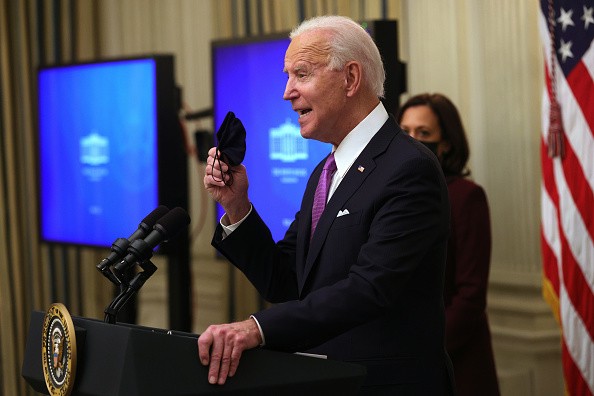
Russian cyberattack, President Joe Biden ordered a sweeping analysis of American intelligence on Russia's role in highly sophisticated hacking of government.
Hacking also includes corporate computer networks and what Biden's spokesman called the "careless and adversarial actions" of Moscow internationally and against dissidents within the country.
The brand new national intelligence chief Avril D. Haines faces the leading question of whether or not the operation is limited to spying or not 'back doors' positioned in authorities. Company strategies give Russia new skills to alter information or completely shut down computer networks.
READ: Stimulus Bill Includes $25 Billion in Rental Assistance. Are You Qualified? Here's How to Apply
On Thursday, President Joe Biden also instructed Ms. Haines to provide him with an assessment of the Kremlin's attempt to use a chemical weapon against Russia's key opposition politicians, Aleksei A. Navalny. Navalny, who survived the attack, was arrested when he went back to Russia this week.
Ms. Haines was also asked to analyze intelligence that generated evidence that Russia had put a "bounty" on American soldiers' lives in Afghanistan.
Simultaneously, officials from the White House said the president would pursue a clean, five-year extension of the two countries' last remaining nuclear weapons deal, which expires in two weeks.
Although the extension has long favored Biden, there was controversy over how long it should be among his top aides. In the hope, his aides said, of preventing a nuclear arms race at a time when the new president expects to be in a state of near-constant, low-level rivalry and conflict with Moscow around the world, and particularly in cyberspace, he chose the most time available under the terms of the treaty.
The combined announcements illustrate the difficulty of Biden's two-step approach to containing Russia's President Vladimir Putin's actions. Biden's aides have said that they have little interest in a "reset" of the kind of ties that President Barack Obama and his then-Secretary of State, Hillary Clinton, had attempted a dozen years earlier.
ALSO READ: Tearful Pelosi: Congress Members Who Were Accomplices to Capitol Siege May Be Prosecuted
But that places Biden in the uncomfortable position of trying to prolong the nuclear deal, which Putin has already said he is prepared to renew while debating very publicly the need to make Russia pay the hacking price. There are few options: if the deal is not extended, both countries will be able to deploy as many nuclear arms as they want from Feb. 6.
But Biden's aides have privately warned that his options for retaliation are limited in response to the assault on the "supply chain" of software used by the government and private industry. In part, because the evidence so far gathered indicated that the Russian cyberattack primarily used their clandestine access to conduct espionage, something that all nations participate in, and that the United States works against Russia all the time, mostly by manipulation of software.
Donald Trump tended to support Putin's denial that Moscow had anything to do with the 2016 attempt to manipulate the presidential election, and Trump advised in December that China, not Russia, maybe behind the hacking strategies of the authorities. He was refuted by his intelligence officers within days and did little to respond to the Russian cyberattack, as far as it is understood.
On Congressional intelligence committees, the Prime Democrats confirmed that the brand new order was timed correctly and was one thing they had long sought from the spy companies.
Virginia Democrat Senator Mark Warner, who will become the chairman of the Senate Intelligence Committee, said Biden was ordering an extensive new Russian cyberattack intelligence assessment and, in particular, a better understanding of the hacking of SolarWinds.
READ MORE: Man With Unauthorized Inauguration Credentials and Loaded Handgun Arrested by US Capitol Police
© 2025 HNGN, All rights reserved. Do not reproduce without permission.








